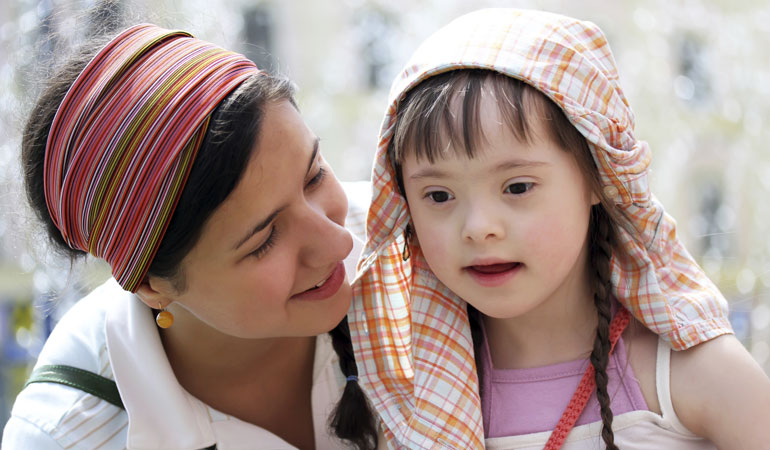“Special needs” refers to physical, developmental, or emotional challenges. Children may have one or two kinds, or all three, depending upon the circumstances of their birth and early life. Studies show that almost all catch up developmentally, though there’s a risk of long-term problems for any child who has spent time in U.S. foster care or an institution.
When I work with families reviewing the special-needs checklist or waiting children lists, I remind them to ask themselves whether they are prepared to meet the needs of a particular child, not whether or not they will choose to adopt him. No child is unadoptable. Parents who consider special needs adoption, however, have the opportunity to anticipate any disabilities he may have, and to identify resources to help him, before placement.
Common Special Needs
These diagnoses are most frequently mentioned in referrals (or identified by a physician after a review of a child’s medical file).
- Cleft lip and/or palate: Children born with a cleft lip and palate may have feeding problems and recurrent ear infections. Surgeries are needed to correct the lip and palate, and, often, to prevent buildup of fluid in the eardrum. In the long term, children are at risk for speech delay, hearing loss, orthodontic problems, and difficulty swallowing, but, generally, no other developmental delays. Occasionally, children have a concurrent genetic syndrome that affects a structure in the “midline” of the body, such as the heart or urinary system. Many children’s hospitals have teams dedicated to cleft lip and palate repair and care.More information is available at March of Dimes.
- Congenital heart disease: Children may have heart defects at birth or later. Although all defects increase the risk of genetic syndromes, medical needs vary. Some require surgery soon after birth or later in childhood, and some resolve on their own. The prognosis depends upon the lesion; a child whose heart problem is resolved may have no further issues, while a child who has complex heart defects may need long-term treatment or cardiac follow-ups. If a child’s referral indicates any heart disease or defect, a pediatric cardiologist should review her medical reports and EKG, as well as ECHO findings, if available.A detailed website with information for various forms of congenital heart disease is available at PTED.
- Down syndrome: Usually diagnosed at birth, this genetic disorder causes developmental delays, especially in speech, and an increased risk of thyroid disease, childhood leukemia, ear infections, and hearing loss. About half of all Down syndrome children are born with heart problems, most of them requiring surgery. Although there is no specific treatment, special-education programs and a stimulating home environment provide the support they need to have full, productive lives. A child should be regularly screened for associated complications.More information is available at NDSS.
- Spina bifida: This defect of the lower spinal cord may cause gradual loss of muscle function in the legs, as well as bladder and bowel incontinence. Most children with spina bifida have hydrocephalus, which occurs when fluid accumulates inside the skull. If this condition is diagnosed at birth, surgery can prevent brain damage, though the child may have learning disabilities. Children should be monitored by a team that includes a neurosurgeon, orthopedic specialist, urologist, and developmental pediatrician.More information is available at Spina Bifida Association.
- Hepatitis B: This infection is frequently noted in referrals from Asian countries. Many children have no symptoms, but can infect other people. Family members who have been vaccinated should be at no risk, and, because the vaccine is now recommended for all children, families may keep this information private. Children should be checked by a pediatric gastroenterologist or infectious disease specialist who will monitor liver function, due to the risk of cirrhosis of the liver and liver cancer in adulthood. More information is available at PKids as well as Heptitis B Foundation.
- Prenatal drug/alcohol exposure: This complex set of diagnoses brings risks of developmental and mental health problems, depending on which drugs a child was exposed to in utero, the duration of the exposure, and whether or not he was born prematurely. [Deborah Borchers explains what prenatal alcohol exposure may mean for your child.]
Ultimately, every adoption is a leap of faith, and no referral will show a complete picture of a child, or of mental health conditions that may be diagnosed after placement. Along with unwavering love, your child needs a family who will commit to him and advocate for him, whether his needs are identified now or years later.
More websites for info:
- http://www.adoptmed.org/
- http://www.med.umn.edu/peds/iac/topics/home.html
- http://www.orphandoctor.com/medical/





